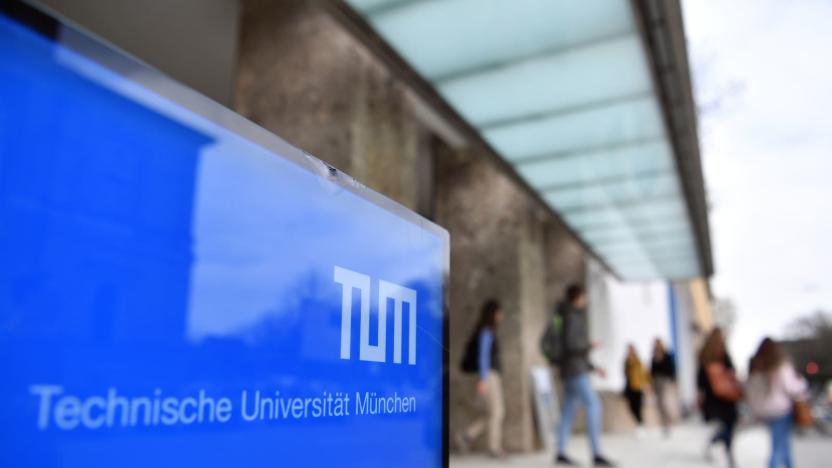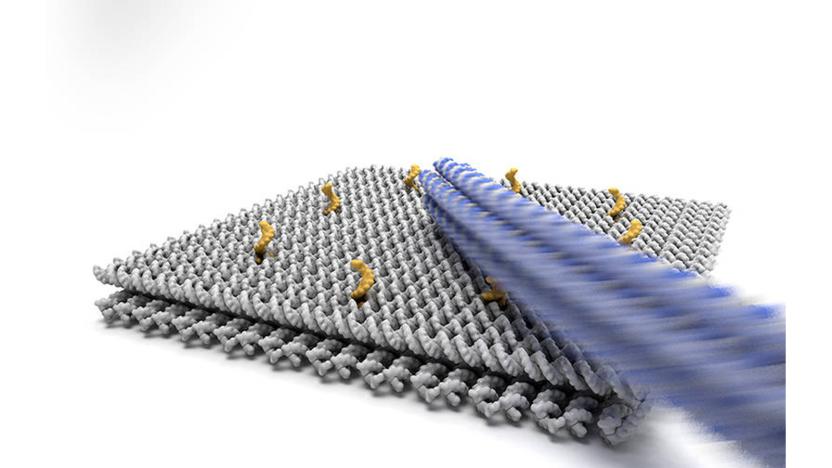tum
Latest

Aircraft lands itself truly autonomously for the first time
Many airliners can land automatically, but they don't really land autonomously -- the airport is guiding them in with a radio signal (the Instrument Landing System). And when many smaller airports don't have this feature, it's not even an option. Researchers at Technische Universität München might just make true autonomous landing a practical reality, though. They've successfully tested a system that uses a combination of computer vision and GPS to have the aircraft land itself.

Facebook backs an independent AI ethics research center
Facebook is just as interested as its peers in fostering ethical AI. The social network has teamed up with the Technical University of Munich to back the formation of an independent AI ethics research center. The plainly titled Institute for Ethics in Artificial Intelligence will wield the university' academic resources to explore issues that "industry alone cannot answer," including those in areas like fairness, privacy, safety and transparency.

Speedy DNA nanorobot could lead to molecular factories
DNA-based robots promise all kinds of microscopic machinery, but there's a major obstacle: they're slow. Existing designs that use biochemical processes for movement can take hours to shuffle molecules around, which makes them utterly impractical for anything time sensitive. That might not a hurdle for much longer. Scientists have developed a DNA nanorobot (specifically, an arm) that uses electric fields to move a whopping 100,000 times faster than previous examples, even though it's based on straightforward concepts.

Electric car prototype is built for Africa's rural roads
With a few exceptions, most electric cars are delicate, expensive creatures designed for paved streets and well-heeled early adopters. And that makes them ill-suited to rural Africa -- many roads away from the cities aren't paved at all, and just about any EV would be out of reach. That's where the Technical University of Munich comes into play. It recently revealed a prototype electric vehicle, the aCar, that's designed for both the conditions and uses of rural Africa.

Terabit fiber optic speeds just came closer to reality
Sure, researchers have been showing off terabit data speeds in fiber optics for years, but they've seldom been practical. That exotic technology may work over long distances, but it can quickly fall apart when you throw typical network loads in the mix. However, it's about to become much more practical. Nokia Bell Labs, Deutsche Telekom and the Technical University of Munich have shown off 1Tbps data speeds in a field trial that involved "real conditions," with varying channel conditions and traffic levels.

Powerful magnetic shield will test the limits of physics
The Standard Model of physics, as good as it is, has gaps: it can't really explain dark matter, gravity or the imbalance between matter and antimatter. Thankfully, German researchers have a new tool that could plug some of those holes. They've developed a magnetic shield whose several layers of nickel-iron alloy are 10 times more effective than the previous best, creating a magnetic field so low and consistent that it actually beats the average ambient field in space. That will let scientists measure particles with such a high level of precision that they could detect previously unknown physics behavior, and set the groundwork for finding new particles. Think of it as a complement to accelerators like the Large Hadron Collider -- rather than smash particles together, it'll help find subtle deviations from the norm.

Mind-controlled drones promise a future of hands-free flying
There have been tentative steps into thought-controlled drones in the past, but Tekever and a team of European researchers just kicked things up a notch. They've successfully tested Brainflight, a project that uses your mental activity (detected through a cap) to pilot an unmanned aircraft. You have to learn how to fly on your own, but it doesn't take long before you're merely thinking about where you want to go. And don't worry about crashing because of distractions or mental trauma, like seizures -- there are "algorithms" to prevent the worst from happening.

Researchers claim to have developed 'smallest conceivable switch'
A team of researchers at the Technische Universitaet Muenchen (or TUM) led by Dr. Willi Auwaerter and Professor Johannes Barth appear to have made something of a breakthrough on the road to the miniaturization of everything. They've devised a molecular switch that measures just one square nanometer, but is able to switch between four distinct states on demand. That was done by placing two protons inside a single porphyrin ring; when one of the protons is removed, the other can then move to any one of the four available positions with the aid of a small current. According to the researchers, that process not only allows for the smallest switch implemented to date, but one whose state to be changed up to 500 times per second. The official press release is after the break.

Robots finally able to follow 'make me a sandwich' command (video)
Pancakes? No problem. Cookies? You got it! Sandwich? ...is there a Subway near by? Why robots have such a hard time slapping meat and cheese on bread is beyond us, but we're glad the crack team at the Technical University of Munich has finally figured out how to teach them. The dynamic duo of James and Rosie don't exactly blaze through their task of making a sandwich and some popcorn, but at least they're nice enough to toast the bread for your salami- and cheese-based chow. As usual, the moves here are not preprogrammed, the two bots make decisions on the fly based on a complex "reasoning" mechanism and data it can cull from a Kinect. Check out the videos below to watch two carefully construct a simple, layered lunch.

Researchers aim to replace copper with aluminum as a conductor in auto power systems
As every lonely cat lady with a police scanner knows, the price of copper is as high as it's ever been -- and there is no reason this trend won't continue. Of course, this affects more than those creeps that sneak into basements to steal the plumbing: the aforementioned ductile metal is currently the best conductor for on-board power systems in automobiles. But with any luck this might soon change. In order to replace copper with aluminum in power supply systems, several challenges need to be addressed, including the fact that aluminum creeps as temperatures increase, and the corrosive effect of bringing the two materials together. Among the efforts of Technische Universitat Munchen (TUM) and BMW to bring aluminum into EVs, the LEIKO power plug uses a sheet metal cage and a pressure spring to allow copper and aluminum elements to remain in contact. If all goes according to plan, TUM's Professor Udo Lindemann (not to be confused with Udo Dirkschneider, the diminutive frontman of German heavy metal bands Accept and U.D.O.) predicts that "the high-voltage on-board systems of most electric vehicles to be based on aluminum by 2020." Check out an awesome picture of Dirkschneider after the break.


